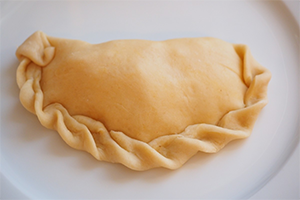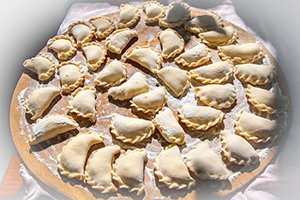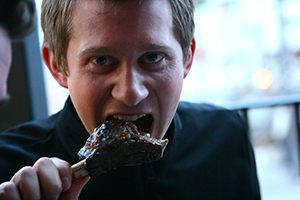6.1 Genitive Case with Expressions of Quantity (Masculine Plural)

In this module, you will learn what case forms to use in expressions of quantity with numerals and several common quantifiers. You will also be introduced to the most common regular ending for masculine nouns in the genitive plural.
Завда́ння 1
Note how the ending of the noun changes depending on the numeral (or a quantifier) it follows. Note the genitive plural ending –ів on masculine nouns after the numeral “five” and after the quantifier “many.”

оди́н до́лар

два до́лари

п’ять до́ларів

оди́н варе́ник

три варе́ники

бага́то варе́ників
Read the text below and select all of the nouns that follow numerals or quantifiers. Then answer the questions that follow.
Важли́во!
While numerals above 5 generally require the genitive plural forms of nouns, those numerals that end with the words два, три or чотири require nominative plural forms. This is true even of very large numbers.For example:
Я ма́ю ще чоти́ри ти́жні в Нью-Йо́рку і ті́льки дві́сті п’ятдеся́т три (253) до́лари!
Note, however, that this does not apply to teen numbers like 11, 12, 13, 14 or numerals that end with these teen numbers, as they do NOT end with the words два, три or чотири:
Я ма́ю ще чоти́ри ти́жні в Нью-Йо́рку і ті́льки дві́сті трина́дцять (213) до́ларів!
Завда́ння 2
You will hear eight sentences. For each sentence, first select the number (for ex., 12) or the quantifier (for ex., мало) used. Then choose whether the noun after the numeral or the quantifier ends with the nominative plural –и/–і or with the genitive plural –ів. Finally, choose in what context/location this sentence is most likely to be used. The first one has been done for you as a model.
Transcript – Завдання 2
- Цей костюм коштує сто двадцять доларів.
- Я маю п’ять екзаменів!
- Ви ще маєте три підручники.
- Тут багато ресторанів, готелів, театрів…
- Тут працюють сімдесят чотири лікарі.
- Реконструкція коштувала сто тридцять два мільйони.
- Мій дідусь мав дванадцять братів!
- Тут дуже мало комп’ютерів.
Завда́ння 3
Look at the food preferences of these people and choose which of them most likely bought each list of items for themselves to eat. Then respond to the question below.

Оле́на – вегетаріа́нка.

Андрі́й лю́бить м’я́со.

Христи́на ду́же лю́бить соло́дке.
Завда́ння 4
You will hear eight unfinished sentences. Choose the most appropriate word to complete each sentence.
Transcript – Завдання 4
- Я купила п’ять кілограмів…
- Ми ще маємо чотири…
- Прошу дати шістсот…
- Ти можеш купити сім…?
- Прошу дати три…
- Ми купили сімсот…
- Прошу дати один…
- Ти можеш купити двісті…
Важли́во!
Stem modifications that occur in masculine nouns in nominative plural and genitive singular also happen in genitive plural forms.
Thus, masculine nouns that end with the suffix –ок drop the –o– and those that end with the suffix –ець as well as the noun день and its derivatives drop the –е-:
огірок – огірків
шматок-шматків (‘piece/slice’)
млинець – млинців (‘Ukrainian crêpe’)
день – днів
тиждень – тижнів
Further, short masculine nouns that replace –і– in their stem with –o– in nominative plural and genitive singular will do the same in genitive plural:
Я тут живу́ рік, мій брат – три ро́ки, а на́ші сусі́ди тут живу́ть вже де́сять ро́ків.
Завда́ння 5
Complete the sentences below paying careful attention to context and to what you have learned about the use of expressions of quantity this far.
Завда́ння 6
Complete the dialogue below paying careful attention to context and to what you have learned about the use of expressions of quantity this far.
Мо́вний пазл
Look through the activities you have just completed and choose the correct statements below to summarize what you have learned.
А тепе́р тест!
Complete the dialogues below by providing the correct noun endings. Then answer the questions that follow.

